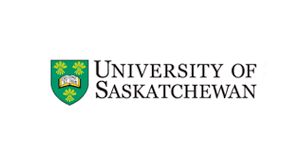University of Saskatchewan: USask leads national team in creating the next generation of food and water security leaders
A national team, led by Dr. Jay Famiglietti (PhD), University of Saskatchewan (USask) professor and executive director of the Global Institute for Water Security, has been awarded a prestigious Natural Sciences and Engineering Council of Canada (NSERC) Collaborative Research and Training Experience (CREATE) grant valued at $1.65 million over six years to support the development of this initiative. The FWNET program will leverage experts from across USask, and from the University of Regina (U of R), University of Guelph, and University of Waterloo.
“Climate change, combined with degraded water quality, a lengthening dry season, increasingly frequent severe floods and droughts, changing market demands, and aging infrastructure pose a significant challenge for sustainable food production,” said Famiglietti.
“There is a real pressing industry need for trainees who can work across disciplines to address some of these challenges. On a global scale, you see that one of the biggest threats to water resources is the water that we use for food production. That’s what’s really driven me, as someone who’s interested in global water security, to try to tackle global food security at the same time because you can’t really address one without the other.”
The program will provide interdisciplinary training in hydrology, agriculture, technology, innovation, and policy to reduce global inequities in food security. It will include a series of innovative courses on the food-water ecosystem and interfaces, followed by elective courses and an engaging research project that tackles a current resource security challenge. There will also be internship opportunities offered in conjunction with industry partners. FWNET will offer training in areas such as equity, diversity and inclusion, communications and professional skills, as well as provide interaction with Indigenous communities and other important groups that can provide unique insight into the challenges of global food and water security.
“We need highly qualified personnel working in the agricultural, environmental, and public sectors and academia to understand the interrelation of water and food production, ecosystem management, and sustainable development in the context of climate change,” said Dr. Margot Hurlbert (PhD), FWNET co-applicant, professor and Canada Research Chair in Climate Change, Energy, and Sustainability Policy in the Johnson Shoyama Graduate School of Public Policy at the U of R. “FWNET trainees will have a more robust understanding of the natural and social sciences, which will help prepare them for careers in water or agriculture-related policy, finance, economics, and leadership positions.”
Both undergraduate and graduate students in qualified programs will be eligible to pursue the training. Students who complete the program will be awarded a certificate and will be able to leverage the specialized training program in their professional pursuits.
“The goal is to train the next generation of students whether they’re going to work in industry or whether they’re going to conduct research,” said Famiglietti. “We’re really building on the work of others and hope that over the next six years we can have an incredible program.”
The NSERC CREATE program supports the training and mentoring of highly qualified student teams from Canada and abroad through the development of innovative training programs. Funded programs are designed to build on the professional skills of students as they prepare to move into the workforce in their field of study.

